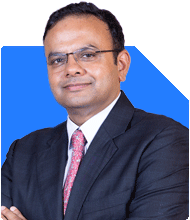I am 67 . I have invested my retirement and savings fund in lic annuity plans; Scss scheme and Bank FDRs (cumulative interest). Is there any other scheme with higher return. Please advise.
Ans: You have made some prudent choices with your retirement and savings funds. The LIC annuity plans, SCSS scheme, and Bank FDRs offer safety and stability. These investments ensure a regular income stream, which is crucial at your stage in life.
Your decision to prioritize safety is commendable. However, it's worth exploring if we can achieve higher returns without compromising too much on safety. Let’s examine each investment and explore alternatives that may suit your needs better.
Assessing LIC Annuity Plans
LIC annuity plans offer guaranteed returns, which provide financial security. But, the returns are often lower than other investment options. The lack of flexibility in annuity plans might also be a drawback. You can’t access a lump sum amount if needed.
Alternatives to Consider
Consider looking at senior citizen-specific mutual funds. These funds are designed to provide steady income with potential for higher returns compared to annuities. Actively managed funds, in particular, can be tailored to balance risk and reward effectively.
Analyzing the SCSS Scheme
The Senior Citizens Savings Scheme (SCSS) is an excellent choice for retirees. It offers decent returns with government backing, ensuring safety. The interest rates are periodically revised, usually keeping pace with inflation. However, these returns might still be lower compared to other options available in the market.
Exploring Other Options
Consider investing a portion in balanced mutual funds. These funds combine equity and debt instruments to provide better returns while managing risk. The equity portion can offer growth potential, while the debt portion provides stability.
Evaluating Bank FDRs
Bank Fixed Deposit Receipts (FDRs) are a safe investment, offering fixed returns. The cumulative interest option helps in compounding, which is beneficial. However, the returns from FDRs are generally lower, especially after considering inflation and taxes.
Alternatives to Bank FDRs
Debt mutual funds can be a suitable alternative. They invest in a mix of bonds, treasury bills, and other debt securities, providing potentially higher returns than FDRs. They also offer better tax efficiency, especially if you hold them for more than three years.
The Role of Mutual Funds
Why Actively Managed Funds?
Actively managed mutual funds are handled by professional fund managers. These experts aim to outperform the market, unlike index funds which only mirror the market performance. The potential for higher returns is significant, though with slightly higher risk.
Actively managed funds can adjust their strategy based on market conditions. This flexibility can lead to better performance compared to index funds, which are more passive.
Benefits of Investing Through a Certified Financial Planner
Investing through a Certified Financial Planner (CFP) ensures you get personalized advice. CFPs help in selecting the right mix of funds based on your risk tolerance and financial goals. Regular funds, managed by Mutual Fund Distributors (MFDs) with CFP credentials, often have access to better research and insights.
Disadvantages of Direct Funds
Direct funds might seem cost-effective due to lower expense ratios. However, they lack professional guidance, which can be crucial. The absence of expert advice can lead to suboptimal investment decisions. Regular funds, on the other hand, offer professional management which can enhance returns over time.
Diversifying Your Portfolio
Diversification is key to managing risk while seeking higher returns. A balanced mix of equity, debt, and hybrid funds can provide growth and stability. Here’s how you can diversify:
Equity Funds: Allocate a small portion to equity funds for higher growth potential. These funds invest in stocks and can deliver significant returns over the long term.
Debt Funds: Increase your exposure to debt funds for stable returns. These funds invest in fixed-income securities, providing steady income with lower risk.
Hybrid Funds: Consider hybrid funds that combine equity and debt. They offer balanced risk and return, making them suitable for conservative investors.
Safety and Liquidity Considerations
While seeking higher returns, safety remains paramount. Ensure a part of your portfolio is in liquid assets. Liquid mutual funds or short-term debt funds can provide easy access to cash when needed.
Tax Efficiency
Investments should also be tax-efficient. Mutual funds, especially equity-oriented ones, offer tax benefits. Long-term capital gains from equity funds are tax-exempt up to a certain limit, making them attractive.
Monitoring and Rebalancing
Regular monitoring and rebalancing of your portfolio are essential. Market conditions change, and so do your financial needs. A Certified Financial Planner can help in reviewing your portfolio periodically. They can make necessary adjustments to ensure your investments remain aligned with your goals.
Emotional and Psychological Comfort
Investing can be stressful, especially when dealing with market volatility. It's important to choose investments that you are comfortable with. High returns are attractive, but not at the cost of sleepless nights. Discuss your comfort levels with your Certified Financial Planner to find a balance that suits you.
Seeking Professional Advice
Given the complexity of managing retirement funds, professional advice is invaluable. A Certified Financial Planner can provide a comprehensive financial plan. They consider your income needs, risk tolerance, and investment horizon. They help in creating a diversified portfolio aimed at higher returns while ensuring safety.
Final Insights
Your current investments in LIC annuity plans, SCSS, and Bank FDRs provide safety and stability. However, exploring mutual funds can potentially enhance returns without compromising on safety.
Consider diversifying into equity, debt, and hybrid mutual funds. Actively managed funds, guided by a Certified Financial Planner, can provide professional management and better performance. Regular monitoring and rebalancing of your portfolio ensure it remains aligned with your financial goals.
Your financial well-being in retirement is crucial. Seeking professional advice ensures that your investments are optimized for higher returns while maintaining the safety and liquidity you need.
Best Regards,
K. Ramalingam, MBA, CFP,
Chief Financial Planner,
www.holisticinvestment.in
































